Mathias Ospelt studied German and English in Fribourg and Berlin. In the early 1990s, he gave his first public readings and, starting from 1994, he did cabaret work with ‘Das LiGa’. Over the years with ‘Das LiGa’ he received the Rheinberger Prize, the IBK Promotion Prize and the Prix Kujulie. He also received a scholarship from the State of Liechtenstein to undergo a sabbatical year, which he spent in Glasgow, Scotland. Today Mathias Ospelt is an author and organiser and has been working independently as ‘Schreiberei Ospelt’ for 23 years. In addition to 18 cabaret programmes, four plays, three festivals and six musical libretti, he has also published six books in the past 26 years. He was a member of the Liechtenstein cabaret ‘Das LiGa/OOS’ and is also, among other things, co-founder and member of the board of trustees of the Vaduz small theatre ‘Schlösslekeller’, co-organiser of the ‘Liechtensteiner Literaturtage’ and president of the P.E.N. Club Liechtenstein. When not working his interests include listening to music and radio, jogging, tending a vineyard, collecting Tintin translations, and supporting the Scottish football club Partick Thistle. Whenever possible, he travels to Scotland, as he has many ties with the country. Mathias Ospelt lives and works in Vaduz and Ayr, Scotland. He has been married since 1995 and is 57 years old.
Where and how did you grow up?
Until the early 1970s I grew up in the villa district of Vaduz (Villa Rheinblick) in an extended family (with grandparents and uncles). It was a very inspiring neighbourhood with other children and their parents who were very open to childlike creativity. After that, my father, my brother Ingo and I moved into a new house in Vaduz’s Oberdorf.
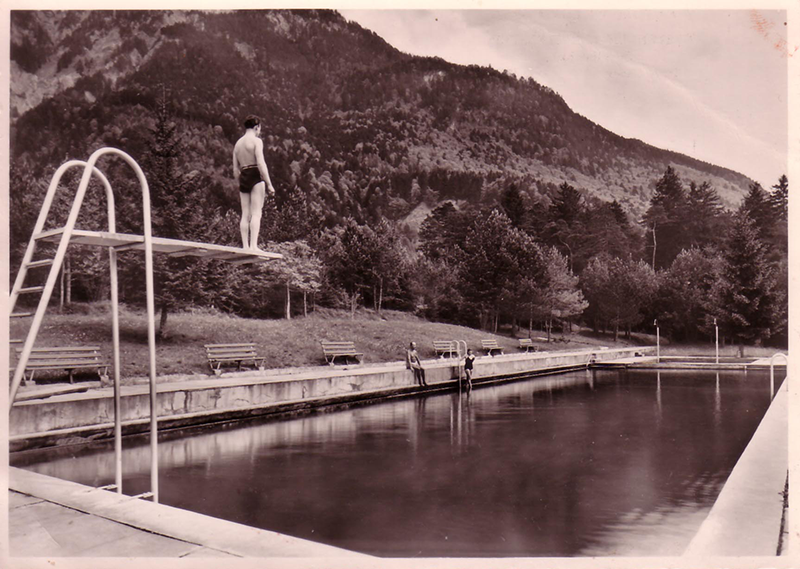
Could you describe your professional background?
I started writing for my own entertainment at a very early age. My first publication of poems was in June 1978 in the unfortunately short-lived Liechtenstein youth magazine ‘Punkt’. The reactions were mixed. After that there were only publications coming from external sources: from a teacher who placed one of my essays in the national newspapers, from an uncle who published a booklet with my poems and Ingo’s illustrations, and so on. From 1990 onwards, I took the dissemination of my texts (publications, readings) into my own hands. The ‘Frohsinn’ in Gamprin paved the way for everything that followed. A first public reading led to ‘Das LiGa’ (cabaret), requests for readings, dialect readings (especially abroad), song lyrics for local bands as well as folkloristic and satirical publications.
During my sabbatical year in 1994/95 I worked on a historical theatre project about Liechtenstein inspired by the Scottish playwright, John McGrath. When I returned from Glasgow, I asked the then Minister of Culture in Liechtenstein, Dr. Andrea Wille, whether the country would be interested in staging the project. This did not happen, but I was commissioned to write a festival play (‘Der Ritter vom Eschnerberg’) for the ‘300 Jahre Unterland’ tricentenary. No requests followed from local theatre institutions in Liechtenstein, but in Switzerland some opportunities did emerge and I was commissioned to write several musicals (in Sargans and Buchs) and a festival play in Werdenberg. And for Liechtenstein I was commissioned to write a revue for the ‘EXPO 2000’ (Hanover) and the ‘EXPO 2002’ (Biel) as well as another festival play (‘Cirque Souverain’) for the ‘200 Years of Sovereignty’ bicentenary (2006).
It is certainly the case that at the turn of the millennium I was very lucky to have been in the right place at the right time in my field of work. But I must have done my ‘state-bearing’ work quite well, otherwise there would have been no follow-up commissions. In the end, however, I am also proud of the fact that I paved my own career path: Through my own initiative and through quality on different levels. Excellent contributors at all levels have inspired me.
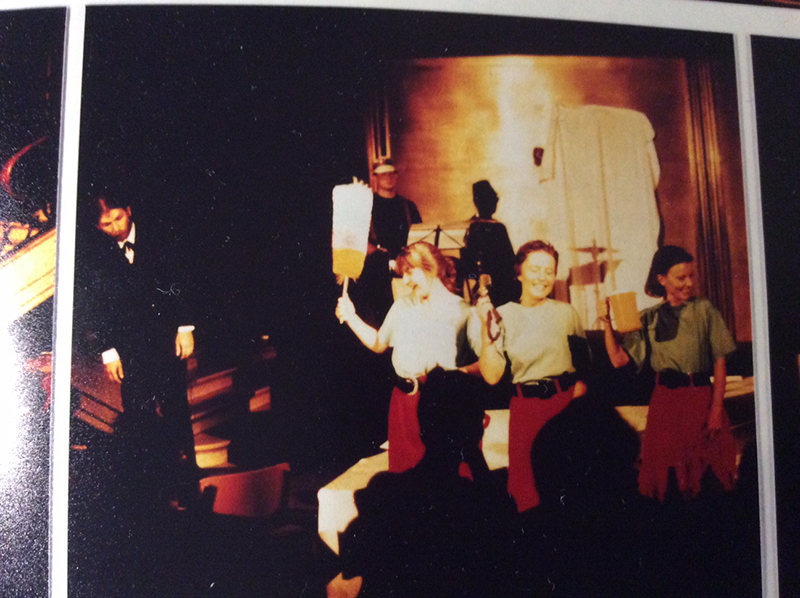
Were there certain events or stations that were formative for your career?
It’s difficult to say that about ourselves, as we also tend to fade out. But here is how I see it at least:
Phase 1: Creative freedom in childhood.
Phase 2: Private freedom in the teenage years, then an abrupt change with creative freedom during a three-year boarding school period in central Switzerland.
Phase 3: The various places of residence during my studies (Fribourg, Berlin, Ireland, Glasgow).
Phase 4: The conscious change in my writing style in the summer of 1989.
Phase 5: The ‘Frohsinn’ in Gamprin in the early 1990s and the associated first public performances in Liechtenstein (reading, Die Herren, Das LiGa) and in Fribourg (reading, student cabaret).
Phase 6: From 1994, the collaboration with my brother Ingo and Marco Schädler as the cabaret trio Das LiGa.
Phase 7: From 2013, the small theatre Schlösslekeller, which I co-founded.
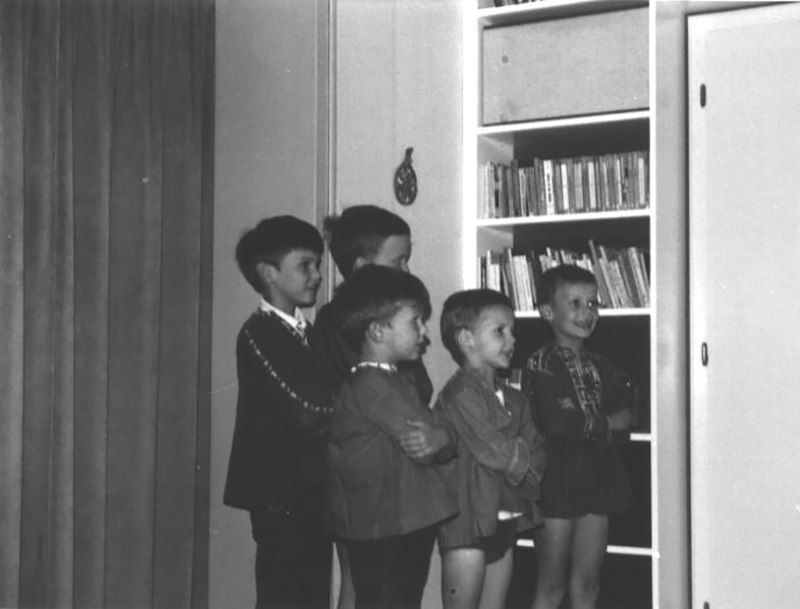
Were there certain people who were formative for your career?
In childhood, certainly my immediate family environment (very liberal, humorous, culturally interested), the neighbours (creativity, motivation), and during my youth individual teachers (literature, theatre). From 1981 a new circle of friends (spontaneity, linguistic and verbal wit), and from 1988 my later wife May (focus, motivation, new cultural approaches). From 1994 my cabaret comrades Ingo and Marco (acting, music, broadening horizons) and from 2013 the Schlösslekeller team.
But also people like Robert Allgäuer (cultural advisory board), Manfred Schlapp (PEN) and Peter Sprenger.
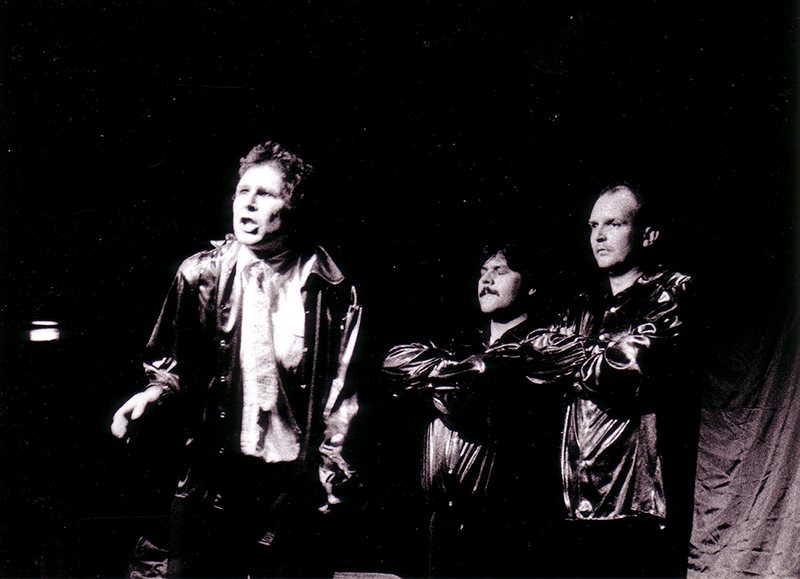
Has your environment supported you in your career?
That’s not so easy to answer. Especially for the early years. Within one’s own family, there was not so much ‘fuss’ about childhood imagination and creativity, but these natural qualities were simply accepted as reality. After all, the family on my mother’s side was full of artistically active people and people who expressed themselves creatively. There was definitely praise and recognition, but not for every ‘fart’. In any case, my brother and I were blessed with sufficient imagination and creativity by nature and were also able to motivate ourselves.
When I first tried my hand at literature, there was the necessary positive support from my immediate environment that made me stick with it. And later I found in my wife a partner who honestly praised me and supported me when she liked something, but also said openly when she disliked something. That helped me a lot again and again.
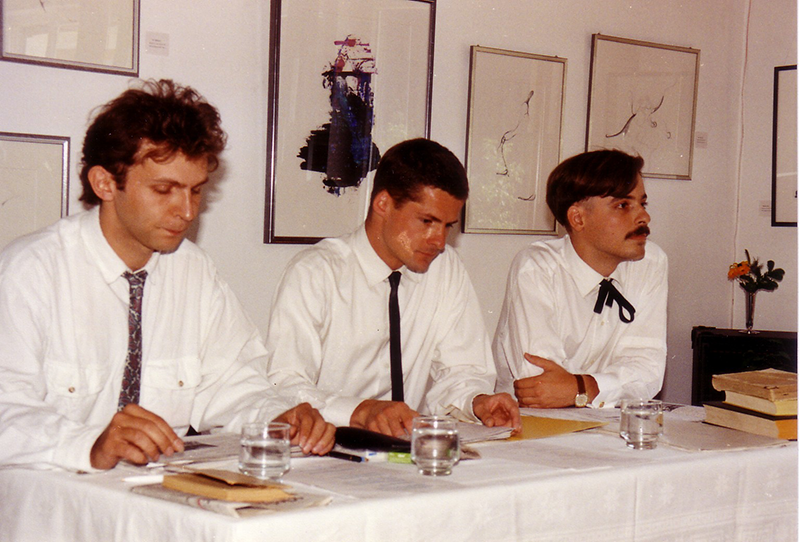
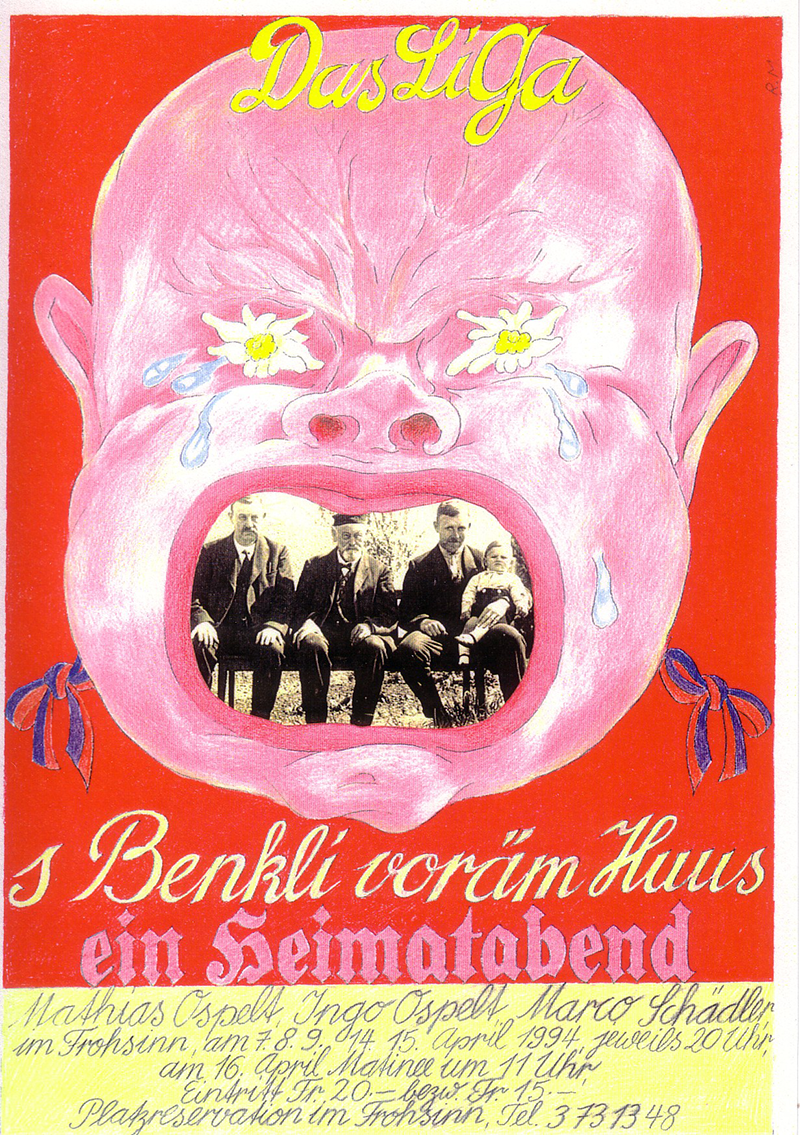
What are your current activities?
For almost four years now, I have been working 50% on a genealogy project for the municipality of Vaduz (family chronicle) and running my ‘Schreiberei Ospelt’ on the side. After exhausting myself in 2019 with three major projects (translation ‘Am Ottokar sis Zäptr’, musical ‘Orient Express’ and cabaret ‘Heimatabend 2.0’), I currently have no major projects apart from the Literature Days, which have been postponed to June 2021 due to the coronavirus pandemic. However, I am writing a short thriller, which I will present at the Literaturhaus on 21 May 2021.
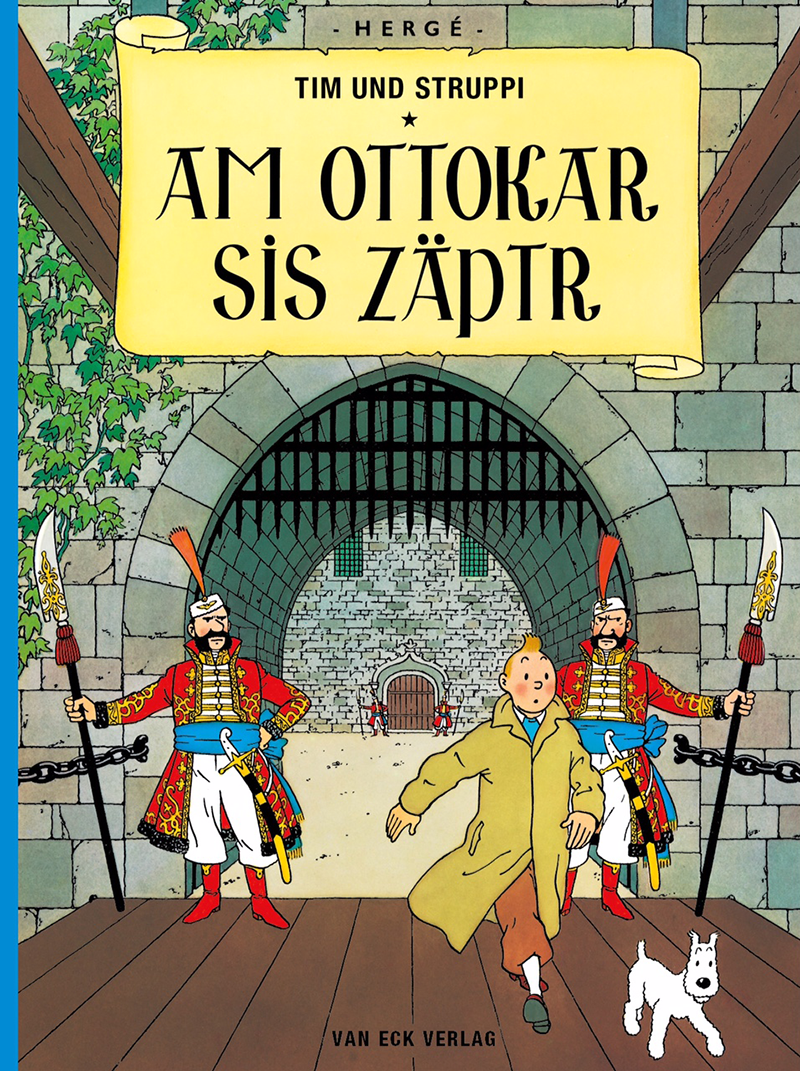
Does what you are currently doing fulfil you?
No. I am not satisfied at the moment. After a period of great artistic fulfilment, I was able to sniff at personal fulfilment in a coronavirus-induced phase of seclusion in the spring, because I finally had time for myself again. Unfortunately, this very positive feeling was lost again in the phase after the summer holidays when ‘everyday life’ returned. For me, everyday life ultimately means getting bogged down all the time, because unfortunately I wear several hats. And I’m not a particularly well-organised person. At the moment, I would be quite content to do my 50% office work and pursue private projects on the side, which have no expiry date and no ‘chatterboxes’. That worked out fine in the spring and I would like to return to this mode of operation.
As far as artistic creation is concerned, I am currently in an intermediate phase. I see my active stage work as being finished for the time being and I would like to devote myself more to my literary work, which has been very neglected over the years. I think this would be very fulfilling for me, if I could get around to it! :-).
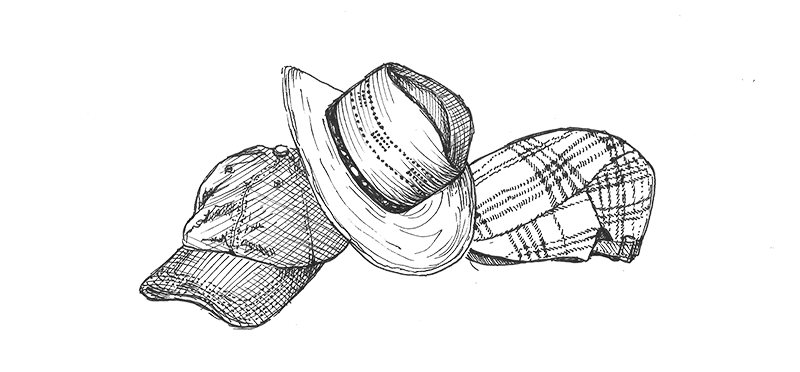
Do you think that you yourself have an influence on whether your activities are fulfilling?
I am convinced that I alone am responsible for what is fulfilling. In any case, the satisfaction of achievement is greatest when it has been created by me.
The crucial thing is to make the activity that is supposed to bring fulfilment depend solely on an internalised approach that one has in mind for promising success and not on other aspects (such as finances) and people. Of course, a project usually needs financial support and of course it is important to receive constructive criticism, suggestions and also technical help in the course of the process, but money and the influence of other people should not override what one wanted to produce in its essence.
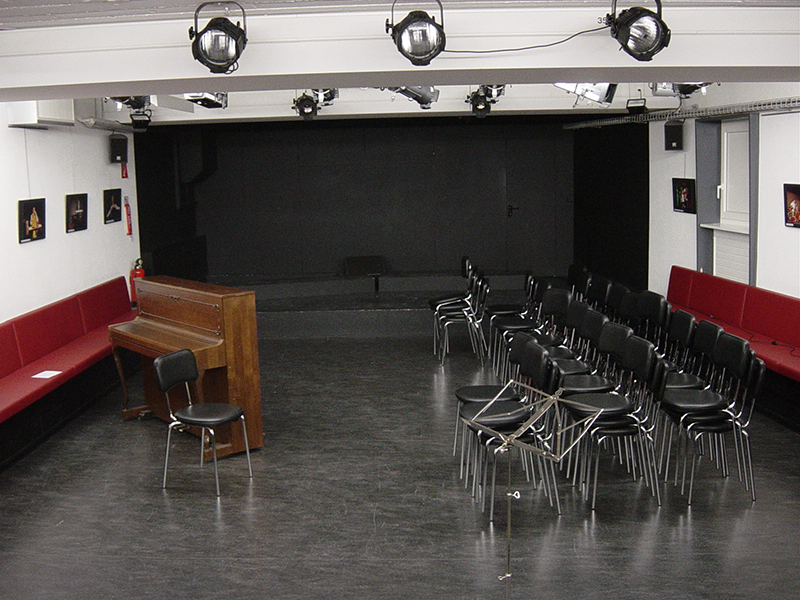
What or who inspires you in everyday life?
My wife, life itself and observing nature whenever possible. The latter was a blessing during the lockdown time in particular.
What or who gives you strength and energy in everyday life?
My wife, the little sport I do, the exchange with politically and culturally like-minded people and me myself. If I can’t give myself strength and energy, who will?
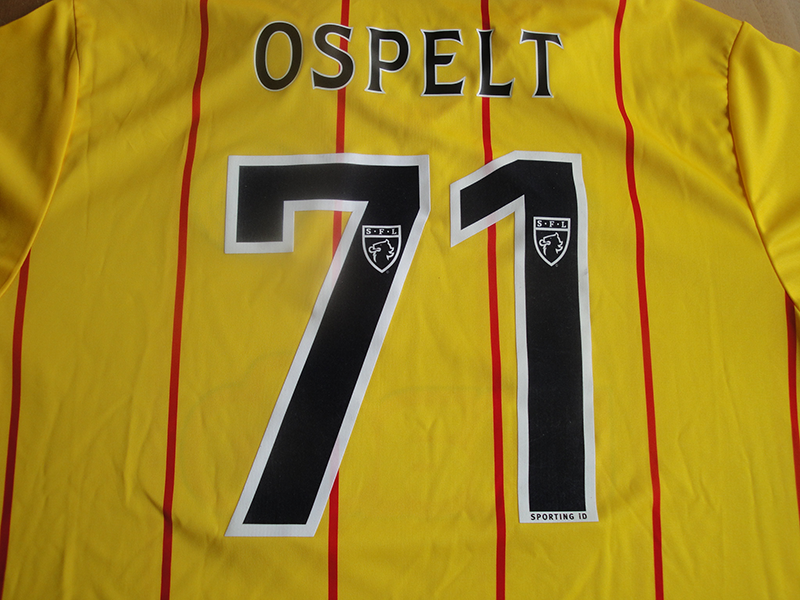
There are ‘magic moments’ when everything seems to fit. Moments that fulfil, inspire and give strength. Moments that confirm that the effort is worthwhile and that what you do is meaningful and valuable. Have you already experienced such moments in relation to your own activities?
In the kind of work I was doing, there were very few moments that were just for me alone. Mostly I wrote texts that several people were involved in completing, and we all shared the success when it came. Looking back, that was and still is very beautiful. But to have the ‘magic moment’ for yourself is something else entirely. And that’s what you need now and then. Collective happiness is good and creates many beautiful moments of community feeling. But in the end I am also a human being. An individual. Mathias. And he sometimes has to find the magic moments for himself.
Three examples:
One of the most ‘magical moments’ in my eyes came on the occasion of our very first LiGa performance in the fabriggli in Buchs. Six years earlier, Ingo, Marco and I had founded the Liechtensteiner Gabarett, ‘Das LiGa’, and celebrated the premiere of our very first programme on April 7th, 1994, at the ‘Frohsinn’ in Gamprin. At the beginning it had not been our aim at all to work as cabaret artists for a longer period of time (in the end it was 25 years!) as cabaret artists or to strive for a supra-regional cabaret career. On the contrary, we actually wanted to present the first part of a planned theatre trilogy with our ‘cabaret Heimatabend’. And actually we didn’t want to get too involved in regional politics. What we did was supposed to be funny, literary, musical, socially critical and a little political of course. The aim was for it to be highly entertaining, and above all, to earn us a little money in the process. When we realised that we were meeting a great need with our programme, we kept at it, and we also became more political over time. In 1999, we tried our hand in neighbouring countries for the first time. In Switzerland we performed in Zurich, Winterthur, Fribourg, Schafhausen, Oberägeri and in Buchs at the end of our ‘Swiss Tour’. The reviews before Buchs were all favourable, but not effusive. In short, nobody in Switzerland had been waiting for us. The ‘Liechtenstein’ in our name often worked to our disadvantage, in that the critics assumed from the outset that they would not be interested in what was happening east of eastern Switzerland. In Buchs it was different. The fabriggli was sold out in the Hui. And it really seemed that the people of Buchs had only been waiting for someone to finally present the ‘Ländle’ in a way they hadn’t seen it for a long time: it was hilarious! In my eyes, the Buchser performance in October 99 was the best LiGa performance we ever had. An unbelievably attentive audience that caught every joke and every innuendo between the lines, that laughed and went along with it without fearing that the person sitting next to them might shop you for laughing at the ‘wrong’ thing the next day, an audience that enjoyed our jokes with us, an audience that was happy that we were at the fabriggli that evening and we ourselves were in top form. Of course, there were many more beautiful performances later with great audiences – both local and foreign to us – but Buchs was a story all of its own. Maybe we should have continued there. But the following year we played in the empty Schlössle for the first time. And that was the beginning of another story…
Another ‘magic moment’, one that I shared only with myself, was the dress rehearsal for ‘Ritter vom Eschnerberg’ in August 1999. Seeing how the images that had been created in my head during the writing of this festival play, by the director Niko Büchel, who trusted these images of the then ‘nobody’ Ospelt and had congenially brought them together with technique and the actors, brought tears of joy to my eyes. It was an important and decidedly beautiful moment in my artistic career, as I experienced first-hand that my artistic work is meaningful and goes far beyond what once began for the drawer and later in the ‘Frohsinn’ in front of a handful of people.
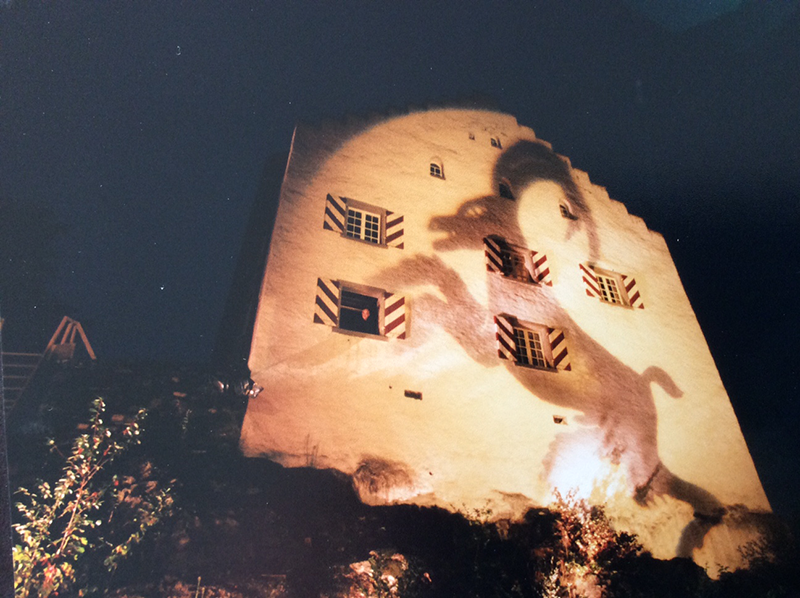
Another ‘magic moment’ worth mentioning was my participation in the Great Scottish Run in Glasgow last year. About 30 years ago, a doctor told me that my foot would have to be stiffened in at least 10 years. So I never went jogging again, even though I loved running. Three years ago, I thought: What the hell? And I put on my running shoes again. And lo and behold: the foot held. Until today! Last year, at the age of 55, I dared to run a city race for the first time and finished it quite well. Crossing the finish line was a great satisfaction and a great experience!
With moments like that, I don’t need a party afterwards to celebrate the moment. The long-lasting, warm feeling under my skin is enough.
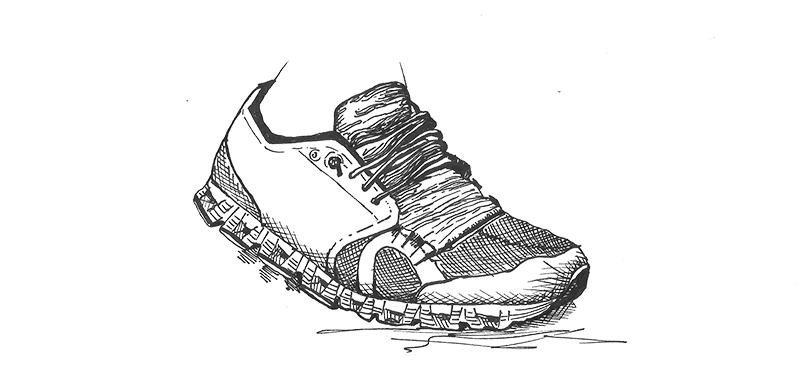
Do you actively do something for it, so that such ‘magic’ moments can happen?
The decisive factor for me is healthy self-assessment. I set myself a realistic goal and then work to achieve it in the best possible way. I don’t want to rely on luck and miracles in my work, but on my ability and, if necessary, excellent contributors. Then success becomes very gratifying.
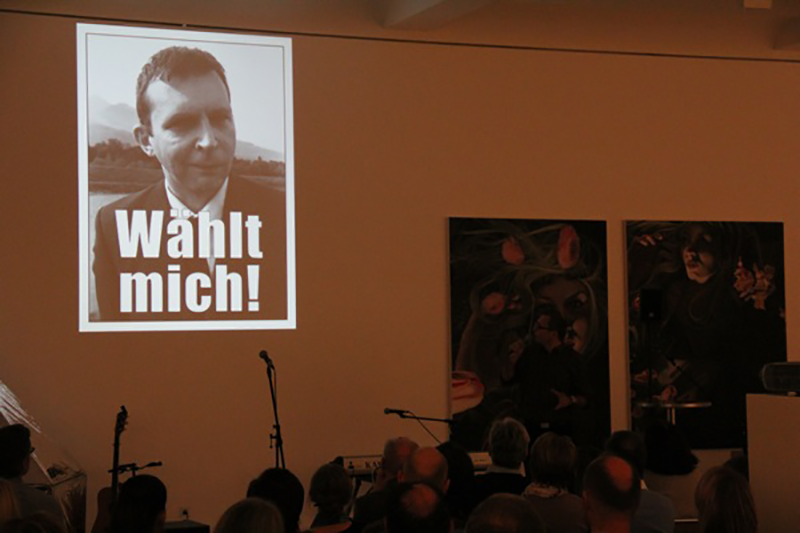
Are there moments when you doubt what you are doing?
At the moment, I despair not so much of what I do, but above all of what is happening in the world in general and of the stultification and brutalisation of humanity. Having to realise that as a creator of art I hardly have any more opportunities to reach brutalised people because they don’t want to be reached at all literally leaves me speechless. How to deal with it? I retreat, go into myself, do things that I enjoy and recharge my batteries in the process. For example, by writing a short novel or by increasing my Tintin collection.
In retrospect, can you find something positive in difficult moments?
Yes. I have to. Otherwise life is not so bearable.
Is there anything you would do differently in retrospect?
Difficult to answer, because I think that in retrospect almost most of it made sense somehow. Even what is seen as negative in retrospect. In the 1980s, for example, there was a lot of uncreative idleness in my life that prevented me from taking many decisions and initiatives. In retrospect, however, perhaps I needed this phase, because from the 1990s onwards I tackled an enormous workload quite light-footedly and successfully.
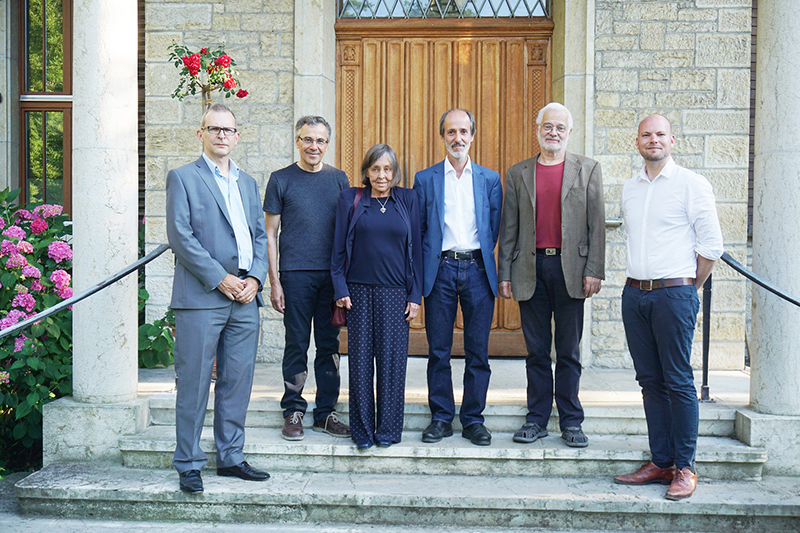
Do you want to contribute to society with your activities?
Contribute is certainly a better word than change. When I started presenting myself in public in the early 1990s, I honestly didn’t care much about society. At that time, it was mainly about me. I had texts that I thought were worth presenting, and I wanted to try that out. But with the extremely positive response from the audience, I realised that it wasn’t just about me, but that I had struck a nerve with a lot of people with my words. And it was fun to build on that.
I think we succeeded with the cabaret, especially in difficult years like the time around the constitutional referendum in 2003, in positively picking up many like-minded people. We were able to give many frustrated and disappointed people a feeling that they were not alone and that it was possible to laugh about all the crap that was being thrown at the population at that time. That was good. And also important.
We also inspired a lot of talented people later on to dare to go on stage and try things out. We always wanted to offer opportunities and we saw ourselves as enablers in this respect. The Schlösslekeller institutionalised this endeavour. I don’t think it’s arrogant or conceited of me to say that the Liechtenstein cultural map – at least as far as cabaret is concerned – wouldn’t be as diverse today if we hadn’t existed.
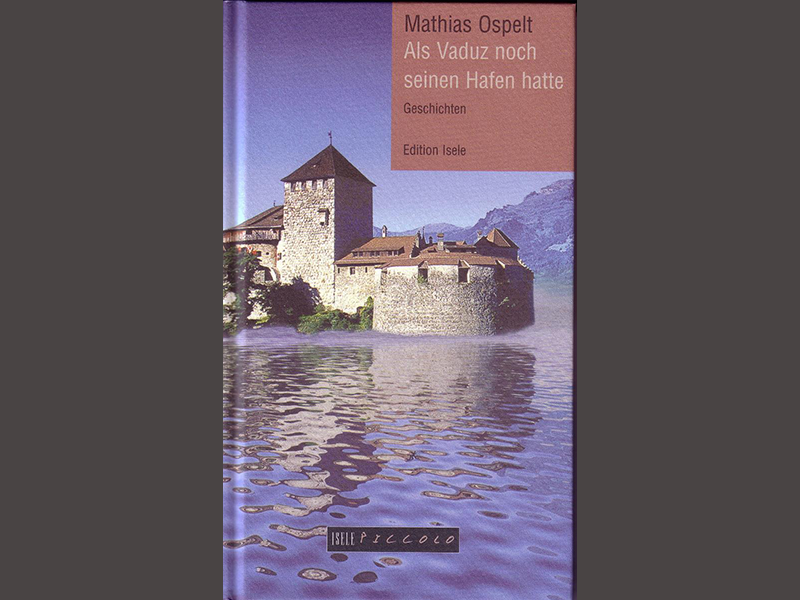
Is the recognition of other people or the public important to you?
I don’t trust artists who claim they don’t care about the reaction, let alone the recognition of the audience. It is this recognition that originally drives us and makes us pull the hidden out of the drawer in the first place. Many often forget this initial impulse once they have been captivated by their success. The question is simply how much the desire for recognition determines creative work. Do I do something to get recognition with it or do I do it because I want to do it for me and the recognition is the reward?
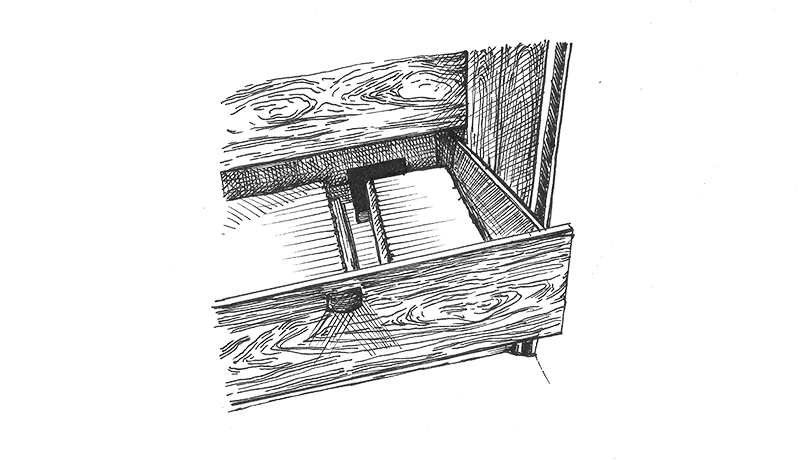
How well can you live from what you do professionally?
It is undoubtedly the case that I could not live from my literary work alone. Liechtenstein cultural workers who want to make a living from their artistic work have to go abroad or earn a national reputation. That was already the case more than a hundred years ago. Liechtenstein is simply too small a catchment area for artists to have a regular income and thus a secure livelihood. For this reason, most artists who are not financially secure from their home backgrounds are forced to earn a regular living, which can certainly interfere with artistic work.
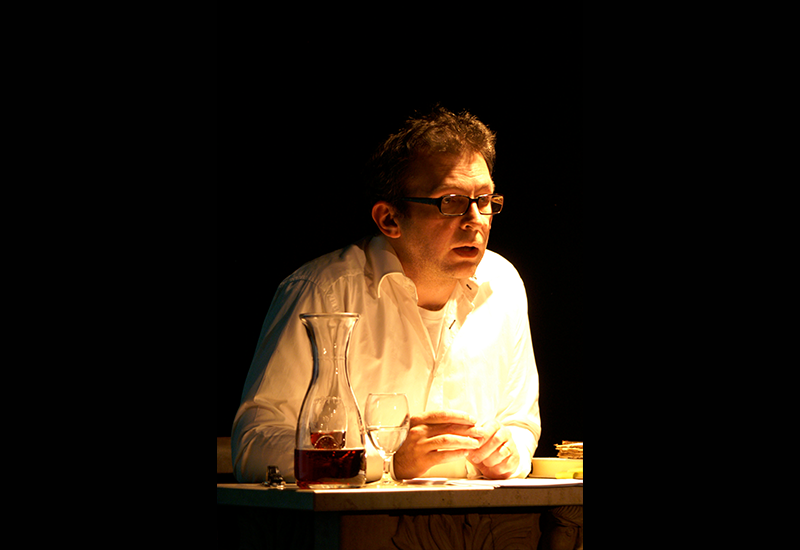
Is there something that is particularly occupying you at the moment?
As already mentioned above: egoism and the associated brutalisation of humanity. I often ask myself how you can still reach these people who are brutalised by art and culture.
But what I also find interesting is something that hasn’t bothered me for a while. Over the past 30 years, I have built up a small archive of newspaper reports and statements on politics and the Princely House. For about two years now, I have not archived anything in this regard. I am simply no longer interested in what politics and the Princely House have to say on any subject. Either it is too irrelevant, too one-sidedly focused on the economy, or it is an eternal repetition of things that were already said 30 years ago (and were even better back then).
Is there something you would like to (increasingly) spend time on in the future?
With my garden, with my past (biography of childhood, youth) and with my crime novel project that I have been thinking about for many many years. Soon I will be ready!
What are you most grateful for in life?
Looking back, I have created the most beautiful moments, the greatest personal successes by myself. I have always tried not to make this dependent on others. Nevertheless, there were always people – first and foremost my wife May – who supported and inspired me on the way to these moments of happiness. Through financial, material or idealistic help and support or simply by letting things happen, not interfering, letting me/us do things. I am very grateful to these people.
Interview
Laura Hilti, November 2020
Illustrations
Stefani Andersen
Links
Kleintheater Schlösslekeller
Liechtensteiner Literaturtage
PEN-Club Liechtenstein
Football Club Patrick Thistle
Credits
Waldhotel: H. Grau/Guidici Zürich
Studentenkabarett «CUT CONNECTION»: Fritz Vogel
«Ivan goes Landtag», Lesung Gästebücher der Schlosswirtschaft: Uve Harder
«Der Ritter vom Eschnerberg»: Eddy und Birgit Risch
«s Benkli voräm Huus»: Regina Marxer (Gestaltung)
All other photos: Mathias Ospelt
This interview is part of the project ‘Magic Moments’ by Kunstverein Schichtwechsel, in which people are interviewed about their careers, activities and their magical as well as difficult moments.
Curated by Stefani Andersen and Laura Hilti, Kunstverein Schichtwechsel.
Supported by Kulturstiftung Liechtenstein and Stiftung Fürstl. Kommerzienrat Guido Feger.
>>> All interviews
